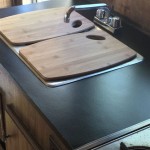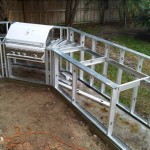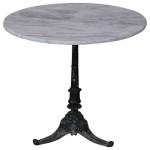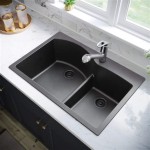Average Thickness of Kitchen Countertop: A Comprehensive Guide
The kitchen countertop is a crucial element that not only serves a functional purpose but also adds to the overall aesthetic of the kitchen space. One important aspect to consider when choosing a countertop is its thickness, which can vary depending on the material and design preferences. In this article, we will delve into the average thickness of kitchen countertops, exploring the different options available and their respective advantages and disadvantages. By understanding the significance of countertop thickness, you can make an informed decision that aligns with your specific needs and preferences.
Standard Thicknesses of Common Countertop Materials
Different countertop materials come with their own standard thicknesses, which are determined by factors such as durability, stability, and ease of installation. Here are the typical thickness ranges for some popular countertop materials:
- Laminate: 1/16 to 1/4 inch
- Solid Surface: 1/2 to 1 1/4 inches
- Granite: 3/4 to 1 1/4 inches
- Quartz: 3/4 to 1 1/2 inches
- Marble: 3/4 to 1 1/4 inches
- Butcher Block: 1 1/2 to 2 1/2 inches
- Concrete: 1 1/2 to 2 1/2 inches
Impact of Countertop Thickness on Durability
The thickness of a countertop plays a significant role in its durability and ability to withstand stress and wear. Thicker countertops are generally more robust and resistant to cracking, chipping, and other forms of damage. For example, a thicker granite or quartz countertop is less likely to crack under heavy use compared to a thinner one. On the other hand, thinner countertops may be more prone to damage, especially if they are not properly supported or installed.
Effects of Thickness on Aesthetics
Countertop thickness can also affect the overall look and feel of the kitchen space. Thicker countertops can create a sense of solidity and luxury, while thinner countertops may appear more delicate and modern. The thickness of the countertop can also influence the visibility of the countertop edge profile, which can contribute to the overall design aesthetic. For instance, a thicker countertop with a beveled edge can create a more traditional look, while a thinner countertop with a waterfall edge can provide a contemporary touch.
Other Factors to Consider
Apart from durability and aesthetics, there are other factors to consider when choosing the thickness of a kitchen countertop:
- Installation requirements: Some countertop materials, such as concrete, require a thicker base for proper support. The thickness of the countertop can impact the installation process and the need for additional support systems.
- Budget: Thicker countertops tend to be more expensive than thinner ones. The price of the countertop material and the cost of fabrication and installation should be taken into account when making a decision.
- Countertop overhang: The thickness of the countertop can affect the amount of overhang that is possible. A thicker countertop will typically allow for less overhang compared to a thinner countertop.
Choosing the Right Thickness for Your Kitchen
The ideal thickness for a kitchen countertop depends on a combination of factors, including the desired aesthetic, durability requirements, budget, and other practical considerations. Here are some general guidelines to help you choose the appropriate thickness:
- For durability and a classic look, consider countertops with a thickness of 1 1/4 to 1 1/2 inches, such as granite or quartz.
- For a more modern and sleek appearance, thinner countertops with a thickness of 3/4 to 1 inch, such as laminate or solid surface, can be a suitable option.
- For heavy-duty use and a rustic charm, thicker countertops with a thickness of 1 1/2 to 2 1/2 inches, such as butcher block or concrete, may be preferred.
Conclusion
Understanding the average thickness of kitchen countertops and its impact on durability, aesthetics, and other factors is crucial for making an informed decision that meets your specific needs and preferences. By considering the standard thicknesses of different countertop materials, the desired level of durability, the overall kitchen design, and other practical considerations, you can choose a countertop thickness that enhances the functionality, beauty, and longevity of your kitchen space.

2cm Vs 3cm Countertop Thickness Choosing The Best

How Thick Are Kitchen Countertops

Learn How Thick Is A Granite Countertop

The Standard Thickness Of Quartz Countertops Stonesense

What Is The Best Thickness For Quartz Countertops Marble Concepts

Marble And Granite Countertop Thickness In 2024 Com

What Is The Proper Thickness Of Natural Stone Countertops

Choosing The Right Thickness For Your Countertop Granite Works

How To Choose The Correct Countertop Thickness For Your

Discover The Best Countertop Thickness Options For Your Home
Related Posts








